Something lost, something found…on a recent trip to Nova Scotia Shelley and I reconnected with two long lost friends. We had met Harry and Cathy Thurston in Guelph, Ontario in the mid ’70’s when Cathy and I were in grad school together. Life happened and we lost touch for more than 40 years–until now. And Harry, who was a budding poet at the time, went on to become an award winning poet, journalist and naturalist of some renown after returning to Nova Scotia.
What a pleasure to have recently read two of Harry’s memoirs, which I recommend to everyone with an interest in fly fishing and the natural world around us.
Lost River, The Waters of Remembrance, A Memoir Harry Thurston
As long ago as the 17th century Isaac Walton described fishing as ‘a contemplative man’s recreation’.
In Lost River, Thurston sees it similarly. ‘Fishing-a contemplative and solitary sport–satisfies a deep, sometimes hidden longing to be alone in nature’.
As a flyfisher I was hooked from the opening two lines.
‘In my youth I lost a river.
No doubt you are thinking this is a particularly vagrant act, even for a boy of dreamy disposition, which I certainly was.’ p. 15
As Thurston reflects on his discovery of the natural world through six decades of flyfishing in Atlantic Canada, we learn about the brook of his childhood, and his favourite rivers, and his relationships with his father and older brother–both of whom were instrumental in his learning to fish.
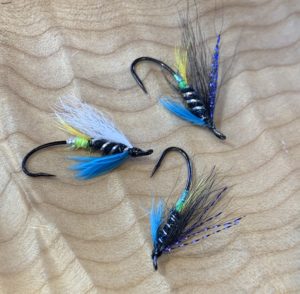
Unlike books ‘about’ fly fishing, Thurston doesn’t dwell on technique or flies.
To be sure, there are plenty of descriptions of swinging the venerable Blue Charm fly, or the lesser known Butterfly, which he described as a fly of choice for some faster water, or casting his go-to dry fly the Quill Gordon to brook trout.
As a fly fisher, I found myself nodding my head as Thurston opines, as most fishers tend to do, about the motivation of trout and salmon to rise to a fly. ‘Perhaps striking the fly is an atavistic behaviour, an instinctive return to what they did as young fish before they went to sea. Or is it a territorial reaction or some other emotional response. Perhaps it is whimsy.’ p 91
I like the whimsy.
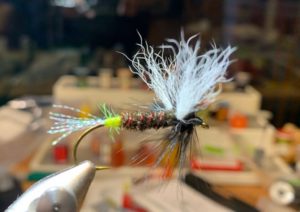
As with A Place between the Tides, Lost River is both a celebration of the natural world and a lament about loss of the same. Thurston makes discovery and loss personal. Whereas an early chapter, ‘First Fish’ describes the joy of landing his first brook trout, ‘Empty Pool’ mourns the loss of his brother.
Fishing their favourite pool together, for what was to be the last time before his brother succumbed to cancer, Thurston writes, ‘both of us sensed that the fish had not yet worked their way into this, our favourite pool. It was also a fact, however, that neither of us cared. We changed flies and continued carefully fishing what, in our hearts we knew to be an empty pool…’ p 183
I suspect that every fly fisher has a favourite river, favourite pool within the river, and favourite fly to cast. Most of us, too, prefer to fish our favourite pools alone or with a favourite fishing companion, hence many of us keep our secrets close to our vests.
It is, indeed, a contemplative man or woman’s recreation.
Why Lost River?
I will leave the last word to Harry Thurston:
‘Lost River remains lost, and always will be. It belongs to that boy of dreamy disposition who, in his reverie, created a river perfect in almost every way….He could not find it because no reality could match what memory and imagination had brought together. A watery place populated by the people whom he loved and who loved him–and home to a brightly speckled fish.’ p 197
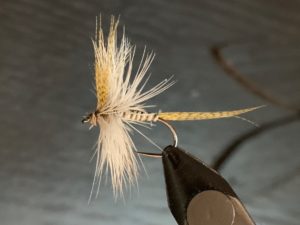
…………………………………………..
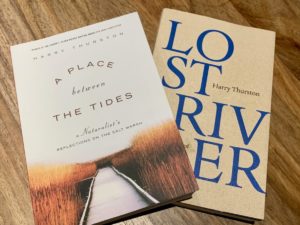 A Place between The Tides-a Naturalist’s Reflections on the Salt Marsh Harry Thurston
A Place between The Tides-a Naturalist’s Reflections on the Salt Marsh Harry Thurston
Thurston’s A Place Between the Tides is his account of the natural world of the salt marsh over the course of a year.
Each chapter is given to a month– January, ‘Red-tail Hawk at Dawn’, May, ‘A Rush to Life’, September, ‘A Time of Turmoil’.
Through Thurston’s trained eye we discover something new with every month–and just as often, something lost.
Hawks, a family of foxes–ducks and late arriving willets, seals coming in on the tide, these are just a few of the denizens of the Old Marsh.
Although the content is well informed by his naturalist’s eye, it is Thurston’s poetic voice that brings the Old Marsh alive. In January, there are ‘eels, coiled in cold-blooded clots at the bottom of my river.’ And later, ‘For me, the marsh watcher, January is a kind of boreal blankness.’
Indeed, Thurston’s ability to switch lenses from that of scientist to poet is striking. In one chapter we learn about how cod and smelt adapt to cold by producing a type of antifreeze molecule ‘conferring a thin margin of safety between surviving cold and becoming a fast-frozen block’.
Contrast that with his description, in the chapter ‘April, the Rite of Return’ , of one of the most beautiful of all birds, the wood duck–
‘I did not quite believe it to be a bird,
but an altered reality winged as angels,
Reverence hushed my breathing, stillness
strained to hold it’s beauty;’ (note 1)
Thurston’s memories evoked boyhood memories of my own–of countless hours tramping through the salt marshes of the mighty Fraser River estuary by my home in Richmond, British Columbia. While other boys were playing team sports on weekends I was sneaking up on flocks of snow geese, or seeing how close I could get to herons fishing for stickleback in the muddy shallows.
As I read about the Old Marsh I couldn’t help but smile, such was the magic of A Place between The Tides.
……………………………………………..
Harry Thurston and his wife Cathy live overlooking the Old Marsh, on the bank of the Tidnish River, in Nova Scotia. An award-winning author, Thurston has written several books of poetry and non-fiction.
Notes: 1. Excerpt from the poem”Woodduck” Harry Thurston, in If Men Lived on Earth, Gaspereau Press, 2000.
……………………………………………..
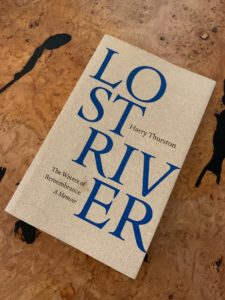
Leave a Comment